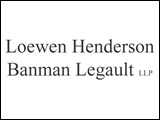The Manager of Swine Health Programs with Manitoba Pork says among the key lesson learned from Manitoba’s 2017 PED outbreak was the importance of full time biosecurity and continuously assessing risks.
The “2017 Manitoba PED Outbreak, Lessons Learned” report, prepared by Manitoba Pork in collaboration with the Canadian Animal Health Coalition and the Chief Veterinary Office of Manitoba, has been released.
Jenelle Hamblin, the Manager of Swine Health Programs with Manitoba Pork, says one of the key lessons was that small lapses in biosecurity will put an operation at risk.
For example cleaning and disinfection equipment that was being used to clean the loading dock after animals were loaded into a facility or unloaded, in some cases it was being brought back into the barn so a potential risk there. As well sharing of staff between infected and non-infected barns, the frequent number of contacts on a farm including the number of times animals wee moved, all examples of potential sources of infection.
So biosecurity was heightened throughout all aspects of the sector, in terms of equipment segregation. All of the stakeholders commented on how each aspect of the operation was segregated to PED and non-PED whether it be transport trailers which had multiple segregations in some cases, barn equipment, manure application equipment.
There was segregation throughout the sector for PED and non-PED. The effectiveness of cleaning and disinfection was also evaluated, specifically in transport. We tested different methods of what we call baking of a trailer, so a form of thermal assisted drying for disinfection purposes. What we found was most effective was to hold that trailer at 71 degrees for 15 minutes minimum. so some learning involved there with times and temperatures that was most effective.
~ Jenelle Hamblin, Manitoba Pork
Hamblin says this has now become a practice that’s used more frequently in the sector especially for those higher risk trailers.



